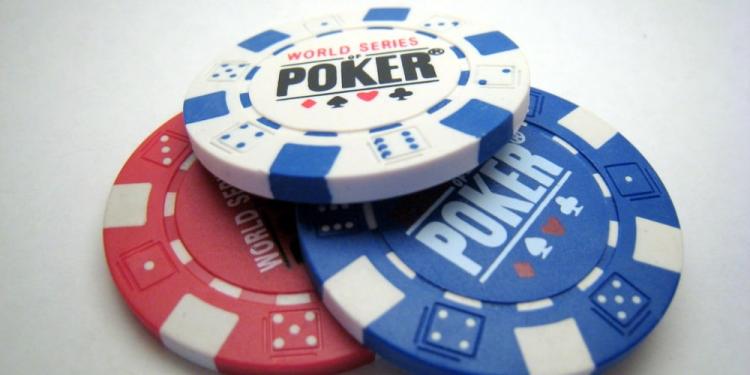A Complete Guide To How Casinos Make Money From Poker
Posted: October 25, 2024
Updated: October 25, 2024
Because the game of poker involves players in competition with each other, with the casino just supplying the dealer, many newbie players might wonder how the casino makes it's money from the game. Well, for a start there's a buy-in to the game. Then casino run plenty of tournaments. With each of these, the casino takes a small percentage for itself.

Poker is one of the most popular and enduring casino games, enjoyed by players in both land-based and online casinos. Whether you’re a fan of Texas Hold’em or Pai Gow poker, it’s a game of skill, strategy, and chance. It also attracts millions of players worldwide, from casual gamers to serious professionals. Whether you’re visiting a brick-and-mortar casino or playing online, one thing is clear: casinos profit from poker. Though the ways they do so vary depending on the platform. This Gamingzion.com article will guide you through how casinos make money from poker. We’ll compare and contrast land-based and online casinos to help you understand the business behind the game.
The Business Of Poker In Casinos
Poker, unlike many other casino games like blackjack or roulette, operates on a different profit model. In games like slots or roulette, the house has a built-in advantage through the odds. But poker pits players against each other. With this, the casino takes a smaller, consistent cut known as the rake. This means poker is less profitable for casinos compared to other games. Yet it still remains an essential part of their business. So, how do casinos make money from poker? The answer lies in a combination of the rake, tournament fees, and additional services. Whether online or land-based, casinos have specific strategies to monetize poker.
How Land-Based Casinos Make Money From Poker
In land-based casinos, the primary way they make money from poker is through the rake. The rake is typically a small percentage of each pot in cash games. This usually ranges from 2.5% to 10%, depending on the casino and the game’s stakes. The rake may also be capped at a certain amount. Thus ensuring that even in large pots, the casino’s take doesn’t become excessive. This system guarantees that the casino earns consistent money from every hand, regardless of who wins or loses. The rake is collected by the dealer and taken directly from the pot before being awarded to the winning player. This makes it a simple yet effective method of profit generation.
Another major revenue source for land-based casinos comes from live poker tournaments. Casinos host poker tournaments that charge players an entry fee. Part of which is kept by the casino while the rest goes toward the prize pool. These events can be highly lucrative. More especially so if the casino attracts high-stakes players or organises well-publicised tournaments like the World Series of Poker. Beyond direct poker profits, land-based casinos capitalise on poker-related services. Players often stay at the casino’s hotel. They also dine at their restaurants, and purchase drinks while playing. Additional amenities like entertainment shows or spa services also contribute to the casino’s overall revenue. These supplementary income streams play a critical role in how casinos make money from poker in a physical setting.
How Online Casinos Make Money From Poker
Online casinos primarily like Bet365 Poker make money from poker through an automated rake system. However, it’s unlike in land-based casinos where the dealer collects the rake. In online poker platforms they automatically deduct a small percentage from each pot, ensuring a seamless process.

The rake is generally capped at a fixed amount, especially in larger pots. As such, you don’t have to worry about it escalating excessively. This allows for more transparent and consistent rake collection. On the whole, percentages typically range between 5% and 6%. Having said that, much depends on the platform and the stakes of the game.
In addition to the rake, online casinos profit significantly from tournament entry fees. The digital nature of online platforms allows them to host much larger tournaments than their land-based counterparts. These online tournaments can attract thousands of players from around the world. Consider that each is paying an entry fee that contributes both to the prize pool and the casino’s revenue. Online casinos can also run a wider variety of tournament formats. Things such as micro-stakes, freerolls, and satellite tournaments, appealing to players of all skill levels and budgets.
Online casinos further boost their poker revenue through promotions and loyalty programs. They offer bonuses, rakeback deals, and VIP programs to encourage frequent play. These promotions not only drive player retention but also maximise the number of hands played. Thereby increasing the overall rake collected. Finally, partnerships with software providers and affiliates help casinos expand their reach. This makes online poker highly scalable and a key factor in how casinos make money from poker in the digital space.
The Rake In Land-Based Casinos
In land-based casinos, just as in online platforms, the rake system is one of the main ways that casinos make money from poker. The rake is typically a percentage of each pot, taken by the casino as profit, and it’s essential to maintaining profitability in poker rooms. The rake generally ranges between 2.5% and 10% of the total pot. For example, in low-stakes games, the rake is often closer to 10%. Whereas in high-stakes games, it tends to be lower but still yields significant revenue due to the larger pots. Some online poker sites in the US apply a flat fee rake structure for low-limit games. This is where the casino collects a predetermined amount per hand, regardless of the pot size.

The rake is usually capped, meaning that beyond a certain point, the percentage no longer increases. This cap is often set to ensure that players don’t feel overburdened in higher-stakes games, where pots can grow substantially. For instance, a casino might cap the rake at $10 on a pot worth several hundred dollars. This ensures a balance between maximising the casino’s revenue and maintaining a fair game for players.
The rake is collected by the dealer, who visibly takes the agreed-upon percentage from each pot as part of the hand’s conclusion. This transparency is important to building trust among players. Afterall, they can see exactly how much the casino is taking from the game. The dealer plays a crucial role in this process. They are responsible for ensuring that the correct amount is removed from each pot, without causing unnecessary delays. This clarity is essential for understanding how casinos make money from poker in land-based environments. It also promotes both player confidence and satisfaction.
How Casinos Make Money From Poker – Online Casinos Rake
In online casinos, the rake system operates seamlessly and automatically. Thus allowing the casino to collect its share of each pot without requiring any manual intervention. Automation is one of the most significant advantages of online poker platforms. It streamlines the whole process and eliminates the need for a dealer to handle rake collection. As a hand progresses, a small percentage of the pot, typically ranging from 5% to 6%, is deducted. This ensures that the casino profits from each hand played. Although this percentage may seem smaller compared to land-based casinos, it can accumulate rapidly. This is due to the high volume of hands dealt per hour in online poker rooms.
Moreover, many online poker sites implement different rake structures tailored to various game types. For instance, Texas Hold’em cash games may have a different rake system than tournament games. In tournaments, players usually pay an entry fee that includes the rake. This contributes to the casino’s revenue while also building the prize pool for participants. Some platforms even offer tiered rake systems. Here the percentage decreases as players reach certain milestones in their gameplay, incentivizing continued participation.
The efficiency and automation of rake collection in online casinos make this an effective revenue model for operators. Without the constraints of physical space, online poker rooms can accommodate unlimited tables and players simultaneously, maximising their potential rake collection. This scalability is a key factor in understanding how casinos make money from poker in the digital realm. After all, it allows them to capitalise on the continuous influx of players from around the world.
Tournament Revenue In Land-Based Casinos
Live poker tournaments are big business for land-based casinos. Especially high-profile events that draw in large crowds. Casinos charge entry fees for these tournaments, typically keeping a portion as profit while the rest goes to the prize pool. Major tournaments like the World Series of Poker attract thousands of players and spectators. Thus boosting revenue through not only entry fees but also hotel stays, dining, and entertainment. Televised poker events and sponsorships also bring in additional income. All in all, this makes tournaments a vital part of how casinos make money from poker in a physical environment.
According to online poker news from the US, the revenue generated from these tournaments is significant. For example, a tournament with a $1,000 entry fee and 1,000 participants could lead to a prize pool of $1,000,000. If the casino retains a portion of the entry fees – let’s say 10% – that would mean an additional $100,000 directly into their revenue stream. Such events not only generate direct income. But also serve to enhance the casino’s reputation and attract more players in the future.
Furthermore, land-based casinos often leverage tournaments to market themselves. By hosting renowned events, they can position themselves as premier poker destinations. This draws in more players from all over the country and beyond. This influx of players leads to increased foot traffic. Thereby boosting revenue across various services offered at the casino, including lodging, food, and beverages.
Online Casino Tournament Revenue
Online poker tournaments are even more profitable for casinos due to their global reach. They also offer an unlimited player capacity. Large-scale events, such as the World Series of Poker Online, attract thousands of players. Remember that each player is paying an entry fee that contributes to both the prize pool and the casino’s profit. Additionally, online platforms often host smaller tournaments. Things like micro-tournaments and freerolls, that encourage participation from a broader range of players. These events serve as a consistent revenue stream and help online casinos grow their player base. This scalable model illustrates how casinos make money from poker in an online setting more efficiently than their land-based counterparts.

Online casinos can run multiple tournaments simultaneously, drawing in large player volumes and maximising revenue. The flexibility of online platforms allows for a wide variety of tournament formats, catering to different skill levels and bankrolls. This adaptability not only keeps players engaged. But it also encourages them to participate in multiple events, increasing overall entry fees and, consequently, the casino’s profits.
Brick-And-Mortar Casino – Additional Revenue Streams
Beyond rake and tournament fees, land-based casinos create additional revenue through various services and amenities. Players at live poker tables frequently purchase food and beverages during their games. This all contributes to the overall profits of the casino. Many casinos offer complimentary drinks to players at the tables. As you already know, it’s a strategy that encourages longer play sessions and increases the likelihood of generating revenue from the rake.
Moreover, casinos often provide accommodation options for players, capitalising on extended stays for both casual and serious poker enthusiasts. The availability of hotel rooms, dining options, and entertainment services creates an all-encompassing experience that enhances player loyalty and engagement. By providing a diverse range of services, land-based casinos can turn poker players into long-term customers. Ones who enjoy not just the game, but also the overall casino experience.
Additional Revenue Streams In Online Casinos
Online casinos also have multiple ways to generate revenue beyond the rake and tournament fees. One primary avenue is through promotional offers and bonuses. These are a sure-fire way to attract new players to the platform. Online casinos like Bet365 Poker often provide sign-up bonuses and deposit matches. You’ll also find plenty of loyalty rewards to entice you to join and continue playing. While these bonuses may seem like an expense, they effectively increase player engagement and retention. Online poker platforms may also generate revenue through affiliate partnerships. They often collaborate with affiliate marketers who promote their sites and attract new players. In return, casinos pay these affiliates a commission based on the players they bring in. This model allows online casinos to reach a broader audience without incurring upfront marketing costs.
Conclusion – How Casinos Make Money From Poker
Understanding how casinos make money from poker reveals the balance between player enjoyment and casino profitability. Both land-based and online casinos have developed distinct models to capitalise on the popularity of poker. This includes leveraging the rake, tournament fees, and additional services to sustain their operations. While land-based casinos benefit from the social experience. Then there’s the ancillary revenue streams from food, beverages, and accommodation. However, online casinos thrive on the efficiency and scalability of their digital platforms.
Click here to try the live casino at bet 365 Poker












